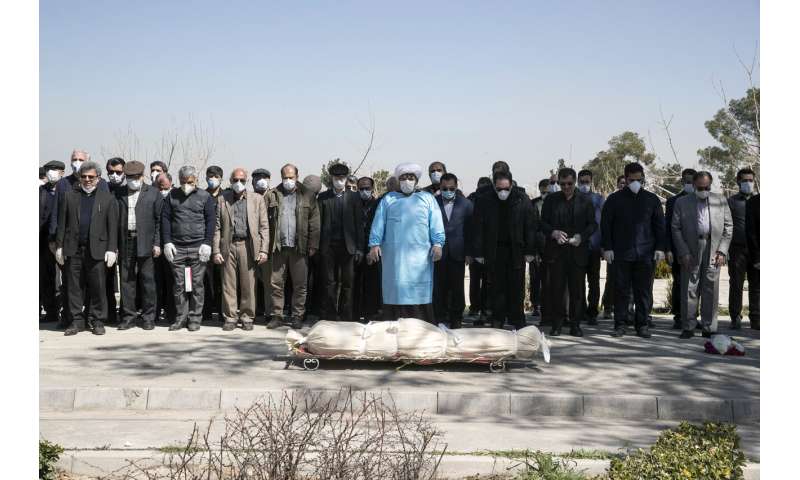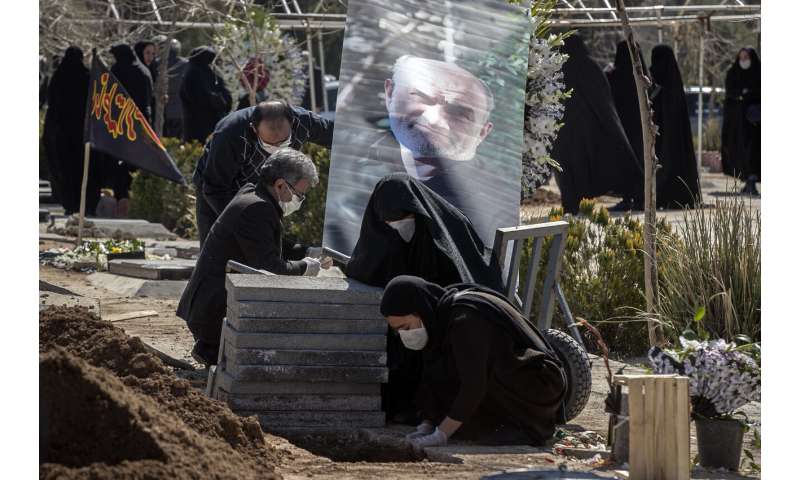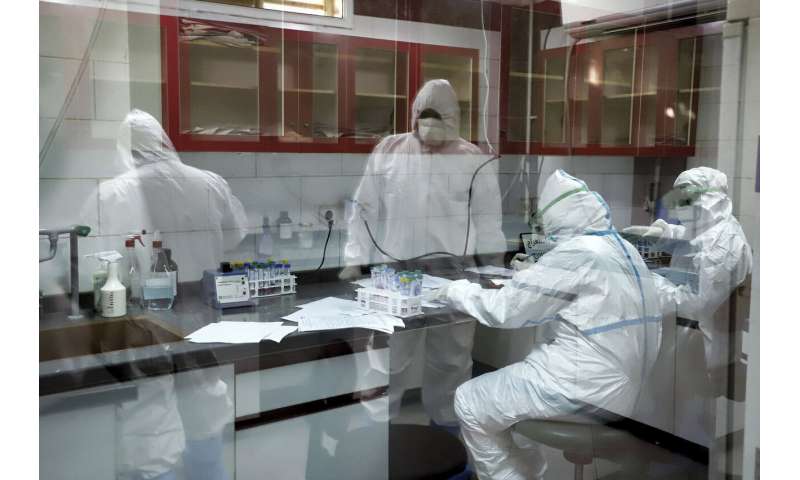

The death toll in Iran from the new coronavirus climbed for another consecutive day, killing 62 more people in the past 24 hours as the government on Wednesday raised the nationwide death toll to 354.
Iran’s Health Ministry said the deaths are among some 9,000 confirmed cases in Iran, where the virus has spread to all of the country’s provinces.
Across the Mideast, the vast majority of the 9,700 people who have contracted the coronavirus and the COVID-19 illness it causes are in hard-hit Iran or had recently returned from there. The Islamic Republic has one of the world’s worst death tolls outside of China, the epicenter of the outbreak. Outside of Iran, only Iraq, Egypt and Lebanon have recorded deaths from the virus in the Middle East.
In the Gulf Arab island nation of Bahrain, authorities say their number of confirmed cases on Wednesday spiked by nearly 70% to 189 confirmed cases. The 77 new cases were all on a returning flight of Bahraini evacuees from Iran.
There are concerns that the number of infections across Iran is much higher than the confirmed cases reported by the government, which is struggling to contain or manage its spread. The rising casualty figures each day in Iran suggest the fight against the new coronavirus is far from over.

For most people, the new coronavirus causes only mild or moderate symptoms, such as fever and cough. For some, especially older adults and people with existing health problems, it can cause more severe illness, including pneumonia. The vast majority of people recover from the new virus.
Among the dead are five of Iran’s elite Revolutionary Guard members and an unspecified number of the Guard’s volunteer Basij force.
Iran’s supreme leader had said Tuesday that the Islamic Republic will recognize doctors and nurses who die combating the new coronavirus as “martyrs”.
The decision by Supreme Leader Ayatollah Ali Khamenei comes amid a propaganda campaign already trying to link the fight against the virus to Iran’s long, bloody 1980s war with Iraq. Its forces, which include virologists, faced chemical weapons during Iran’s eight-year war against Iraq.

That the Guard is involved in the relief effort of a major catastrophe is not surprising in Iran. The Guard, whose forces include an estimated 125,000-plus troops and 600,000 mission-ready volunteers, routinely respond to the earthquakes that shake the country. Recent floods saw its troops mobilize as well.
Meanwhile, Saudi Arabia has barred travel to and from 14 countries affected by the new virus. Early on, as the virus spread in Asia, the kingdom stopped pilgrimages to Islam’s holiest sites in Mecca and Medina, and cut travel links with China and later, Iran. It has also barred entry and exit for residents of Qatif, an eastern Saudi province where most of the country’s 21 cases of the virus are confirmed after travel back to Iran.
Source: Read Full Article